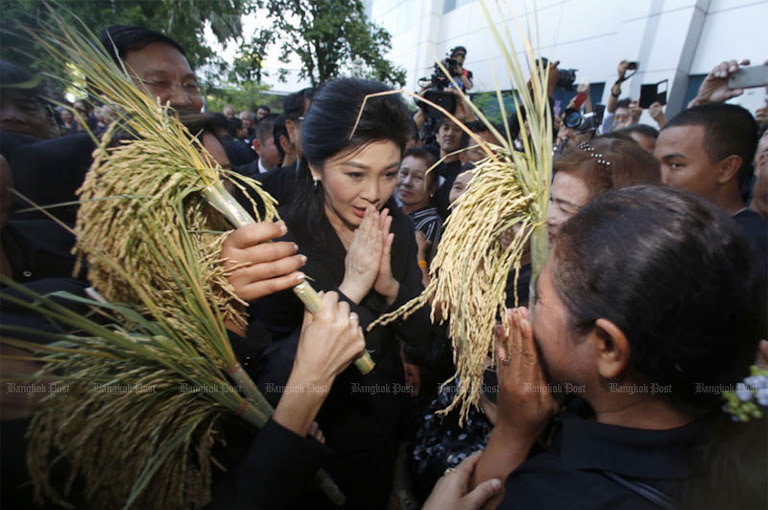Thailand Court: Yingluck Must Pay Bill for Rice Scheme
Court orders Yingluck to pay 10 billion baht for losses from the rice scheme, initially designed to boost farmer incomes.

The long and winding saga of Thailand’s rice-pledging scheme continues, illustrating a familiar tension in democratic governance: the seductive appeal of populist policies and their often-unintended consequences. As reported recently by the Bangkok Post, former Prime Minister Yingluck Shinawatra has been ordered by the Supreme Administrative Court to pay 10 billion baht in compensation for losses incurred during her administration’s attempt to artificially inflate rice prices. This ruling, while significantly reducing the original claim of 35.7 billion baht, underscores the deep and lasting ramifications of policies driven by short-term political gain.
The scheme, launched over a decade ago, aimed to boost farmers' incomes by purchasing rice at above-market prices. The logic, seemingly straightforward, was to transfer wealth directly to a politically important constituency. However, the repercussions, as often happens with interventions in complex systems, were far-reaching and ultimately destabilizing. The court found that the scheme led to massive financial losses and significant distortions in the rice market.
At the heart of this case lies a fundamental question: Where does accountability lie when policy initiatives, however well-intentioned, result in demonstrable harm? While Yingluck’s legal team argued that she was not directly responsible for the operational failures that plagued the program, the Supreme Court’s Criminal Division for Persons Holding Political Positions previously found her guilty of mishandling the program. The recent ruling, focusing on losses attributable to government-to-government sales, attempts to pinpoint a specific area of responsibility.
The intricacies of the case highlight the challenges of governing in a globalized world, where even seemingly domestic policies can have significant international repercussions. The Central Administrative Court initially ruled against the compensation order, citing corruption at the operational level, including issues of farmer eligibility, substandard storage, and even the falsification of government-to-government sales. This highlights a cascading series of failures, raising the question of whether a single individual can be held entirely accountable for systemic dysfunction.
This ruling underscores several key points:
- The difficulty of isolating direct culpability in large, complex government programs.
- The inherent risks associated with market interventions designed to achieve specific political outcomes.
- The long-term costs, both financial and in terms of public trust, when policies are perceived as benefiting a select group at the expense of the broader public.
- The lasting political impact from such a judgement on a key political figure.
The case of Yingluck Shinawatra and the rice-pledging scheme serves as a cautionary tale. It’s a reminder that policies designed to provide immediate gratification can often create long-term instability, eroding public trust in the very institutions designed to serve them. The pursuit of short-term political advantage can ultimately undermine the foundations of sustainable governance.
What happens next is uncertain. While some of Yingluck’s assets were seized when she fled Thailand in 2017, the details of how the 10 billion baht will be recovered remain unclear. More broadly, the episode raises profound questions about the future of Thai politics. Will this serve as a deterrent to future populist initiatives, or will the allure of quick political wins prove too strong to resist? As seen in other examples, balancing competing needs in society is difficult.









